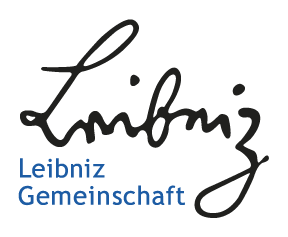World Digital Preservation Day 2020
Today we to celebrate „World Digital Preservation Day“ – and want to give a very brief review of last year’s activities.

A growing Team
In the beginning of the year we were happy to welcome two new team members to our digital preservation team! They support us with our regular ingests of new material into the archive, and help with the integration of new workflows. We were very lucky to be able to see them at least for a few weeks in person before we all headed towards our homeoffices. Now our regular videoconferences are a good way of getting to know each other on an entirely different level, including views of our homes with kids, knitting equipement and a robot named Cosmo.
New Workflows and Tools
Our digital archive is growing – we’re currently up to over 2 million files in 118.823 Intellectual Entities – and we’re developing new workflows. From a list of Open Access journals relevant to our collection as the Leibniz Information Centre for Science and Technology, we chose 12 suitable candidates for a pilot preservation project. In a next step, we developed Python-based tools to harvest the journals and prepare for deposit. In the last few weeks the first volumes have been deposited, with many more to come and add to our archival collection!
We successfully added 1.953 digitized films from the DELFT-project to our archive and since we like AV so much, we already have a new digitization project on the way. We learned a lot during our first years with AV data and have worked with MediaArea on some exciting improvements to the open source QCTools.
Speaking of improvements – another thing that kept us busy was the migration of the underlying infrastructure of our archival system, which implied testing before and after the transfer. And not only for one system, but for all three: development system (which is our „play ground“, the testing system (in order to test workflows) and productive system (which is the actual archive).
Also testing different software and new releases of software we are already using is a regular task during the year. This helps us understanding our collections, improving workflows, finding the right tool for our requirements and gather knowledge in the broad field of preservation watch.
Events to celebrate
Although we are quite used to organize and host smaller or not-so-small gatherings it was quite a challenge to transfer the experience into the digital world. Usually the German-speaking Rosetta User Group meets up once a year in person to present each other new workflows, chat about using the software and the underlying technical hard- and softwarecomponents. A great opportunity to ask others how they tackle digital preservation challenges, what kind of software they are using, how they are documenting, …. and to find out whom best to ask whenever a question pops up during the year! As it was our turn to host the event in May, we did not only want to transfer the presentations into „the digital world“ but also the experience of meeting people at the coffee table for an informal exchange. So we decided to split into several groups for a coffee break and q&a. Although we missed seeing each other in person the meeting still had an „event character“. The same applied to „visiting“ the virtual International Rosetta User Group Meeting in June, the OPFCon in June and we miss ipres in September.
In August TIB’s digital archive was awarded the Core Trust Seal. Building up on the documentation of previously awarded nestor Seal and Data Seal of Approval the TIB conducted a self-assessment. As part of this, we translated our publicly available documentation from German and English – check out the wiki which is available in both languages.
Proudly presenting …
As if it wasn’t enough, apart from our digital AIPs we do now offer the preservation of physical AIPs 😉
We would like to contribute to the Digital Preservation Community by offering insights in the creation of our very first physical AIP:
... arbeitet im Team Langzeitarchivierung

